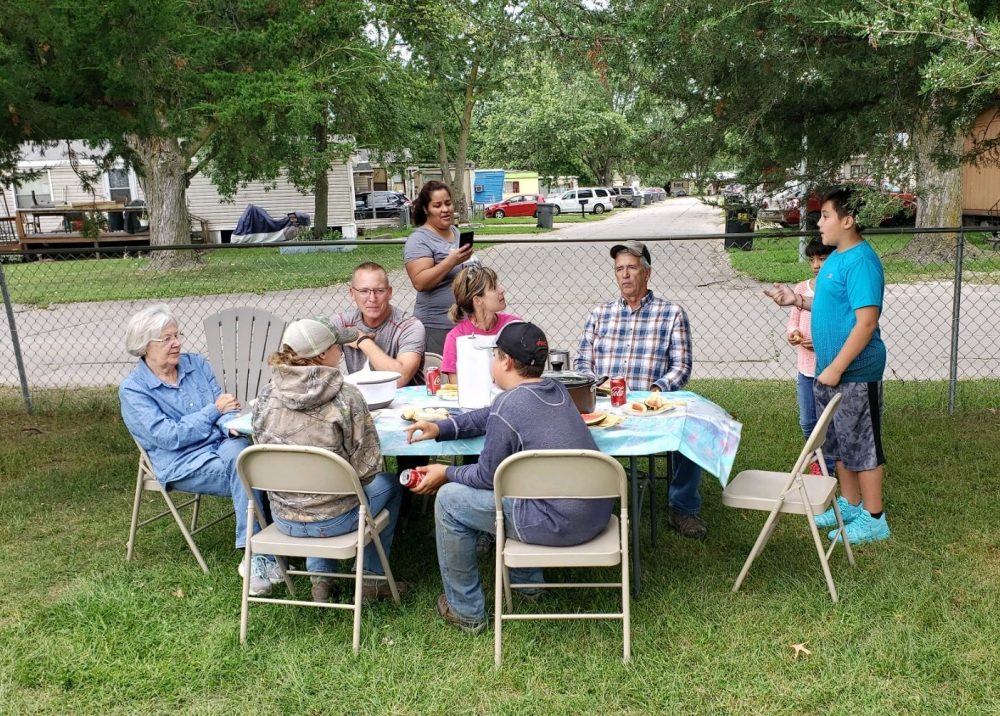Overcoming Barriers

Just outside the city limits of Fremont in Central Nebraska is a 300-unit mobile home community that is home to approximately 1,200 individuals. The neighborhood, which was heavily impacted by the epic 2019 March bomb cyclone that caused extensive flooding across much of Nebraska and western Iowa, checks off a list of vulnerabilities that make disaster recovery especially challenging: The residents here are primarily Spanish speaking, with mixed immigration status households. Most work in food production and low-wage service jobs in the region. Although a vital part of the community economy, they are unnoticed at best and ill-treated at worst.
After the flood damage brought attention to the current and underlying vulnerabilities of the neighborhood, multiple nonprofits and community members from the region stepped in and donated money and goods and volunteered to assist in clean-up. Even though they lived just miles apart physically, the community of Fremont and this Latinx neighborhood were mostly unknown to each other and there was little trust on either “side.”
When Fremont Area Habitat for Humanity (FAHFH), along with the local Long-Term Recovery Group (LTRG) and other nonprofit organizations began their work here, there were many barriers to getting assistance to impacted residents. Among these barriers were language, cultural differences and trust. In the early summer of 2019, and with support from the Midwest Early Recovery Fund, the LTRG set out with a great plan. One organization hired bilingual case managers while another hired a volunteer coordinator and FAHFH hired a reconstruction manager. These disaster recovery essential workers quickly began establishing relationships in the neighborhood and worked to build trust.
Now, a year later, Terry, FAHFH’s Flood Recovery construction/repair manager, is known by name throughout the neighborhood. He has been invited to share meals, enter homes and join neighborhood conversations. Throughout COVID-19, with no volunteers able to assist, Terry has continued to repair homes himself. Terry has become an advocate for this neighborhood, desperately in need of assistance, as they now work to recover from flooding and the impacts of the pandemic.
Something beautiful happens when those who need assistance get to be the ones who give. Terry, remembering the day this picture (above) was taken nearly a year ago, said, “This day stands out in my mind. There was a group of us working on a trailer home all morning. Around lunchtime, the family came out with a table, tablecloth, homemade tamales and watermelon. The volunteers and the family all sat down together to eat, even though there was a communication barrier. The family was grateful for the help from the volunteers and took it upon themselves to feed us.”
Through the work of FAHFH and Terry, reciprocal trust has been established, households have been empowered to give and to receive, and an entire community is seeing signs of hope and healing during this difficult time.